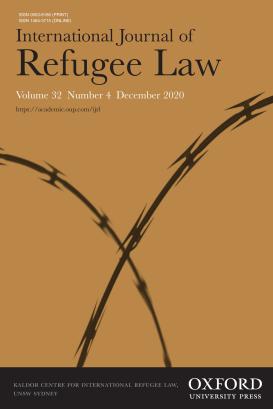
LSTS member, Lina Jasmontaite, and FRC member, Júlia Zomignani Barboza, published a new article on the International Journal of Refugee Law entitled 'Disproportionate Surveillance: Technology-Assisted and Automated Decisions in Asylum Applications in the EU?'.
Abstract
Since the terrorist attacks of 11 September 2001 in the United States, the association between migration and security has been continuously strengthened, with multiple States working to tighten their border controls. In the European Union (EU), this trend has been shown by the frequent overlap between asylum application and migration policies and the agenda concerning border control, security, and terrorism. This securitization of migration discourse is claimed to justify the use of controversial practices to examine asylum applications. Against this background, the article reflects on the use of technology-assisted and automated decisions in this area. In particular, it questions whether the existing safeguards provided in the EU data protection framework ensure asylum seekers’ rights to privacy and the protection of personal data. In doing so, the article seeks to offer a more nuanced understanding of European asylum policy and the potential flaws therein that allow individuals’ fundamental rights – enshrined in the EU Charter and the European Convention on Human Rights – to be infringed. In conclusion, the article engages with the debate relating to the use of automated decisions, in particular those based on artificial intelligence, and whether they should be excluded from certain policy areas, such as migration.
